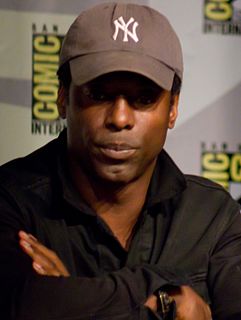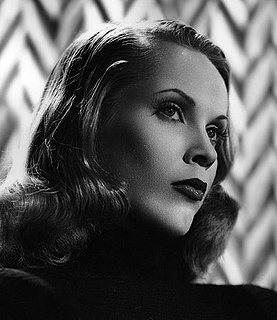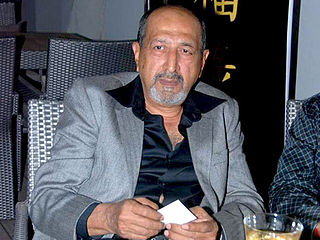A Quote by Joan Didion
Actually, when John died, for the first time I thought - for the first time I realized how old I was, because I'd always thought of myself - when John was alive I saw myself through his eyes and he saw me as how old I was when we got married - and so when he died I kind of looked at myself in a different way. And this has kept on since then. The yellow corvette. When I gave up the yellow corvette, I literally gave up on it, I turned it in on a Volvo station wagon.
Related Quotes
When I saw him look at me with lust, I dropped my eyes but, in glancing away from him, I caught sight of myself in the mirror. And I saw myself, suddenly, as he saw me, my pale face, the way the muscles in my neck stuck out like thin wire. I saw how much that cruel necklace became me. And, for the first time in my innocent and confined life, I sensed in myself a potentiality for corruption that took my breath away.
The whole time I was on 'Grey's,' I'm still reconciling myself to my 11-year-old son, because he never saw me during that time. By the time he got up, he'd see a dent in his pillow, but by the time I got home, he was already asleep. So for three years, he had a daddy that he never saw because I had to work.
After the last shovel of dirt was patted in place, I sat down and let my mind drift back through the years. I thought of the old K. C. Baking Powder can, and the first time I saw my pups in the box at the depot. I thought of the fifty dollars, the nickels and dimes, and the fishermen and blackberry patches. I looked at his grave and, with tears in my eyes, I voiced these words: "You were worth it, old friend, and a thousand times over.
Let's consider: at the time of the Buddha, when he attained enlightenment, according to the old texts, in the first watch of the night, he went through all of his past lifetimes. Then in the second watch of the night, his mind opened still further and encompassed the coming into being and dying and re-coming into being of all beings, everywhere. The third watch of the night, he realized interdependent origination. He realized interdependent origination because he saw it. It wasn't some theory he thought up. He saw it. That was his enlightenment experience. That was why he was a Buddha.
Fathers are always so proud the first time they see their sons in uniform," she said. "I know Big John Karpinski was," I said. He is my neighbor to the north, of course. Big John's son Little John did badly in high school, and the police caught him selling dope. So he joined the Army while the Vietnam War was going on. And the first time he came home in uniform, I never saw Big John so happy, because it looked to him as though Little John was all straightened out and would amount to something. But then Little John came home in a body bag.
Oh yes, I dated Orson Welles. We had many encounters on both coasts. I remember the first time he saw me in a boudoir, in a negligee, he said in that wondrous voice of his, ‘Magnificent Carcass.’ ‘MAGNIFICENT CARCASS?’ I thought to myself. Whatever, I didn't see that one coming. But that's really all I want to say about Orson. I don't want to go into how he gave me the Clap.
I worked with him on 'Agneepath,' where we acted together. I played his uncle. Everyone, including Amitabh himself, wondered how I would play his uncle since I was younger than him. I knew what I had to do. I shaved my head, gave myself a receding hairline and some bald patches. He was shocked to see me when he saw me for the first time.
During college, when I was working full time for my father [the decorator Mark Hampton], I rented an apartment and I just couldn't take time off to paint it. So I went there one evening and stayed up all night painting the place what I thought was a lovely pale yellow. When the sun came up, I realized I'd painted the walls the color of insanity. I had to immediately mix in all my trim color to tone it down. Yellow is an electric color and wholly misleading. It becomes more yellow with the sun's yellow light on it. The moral is, even if you think your yellow is the one, go paler.
When I went through a really intense break-up - you know, I was engaged - the thing that gave me the most anxiety was not knowing what to do with myself when Disney wasn't there to carry me anymore or if I didn't have him. And now I'm FREE of both of those things and I'm fine. I lay in bed at night by myself and I'm totally OK and that's so much stronger than the person three years ago, who would have thought they would have died if they didn't have a boyfriend.



































